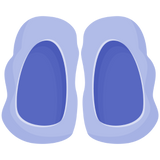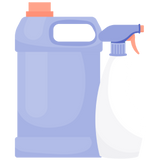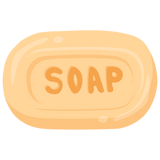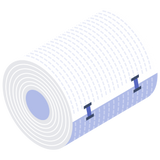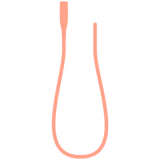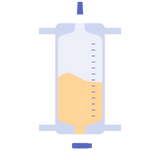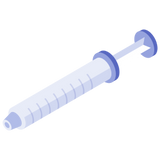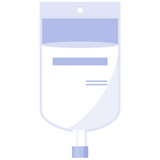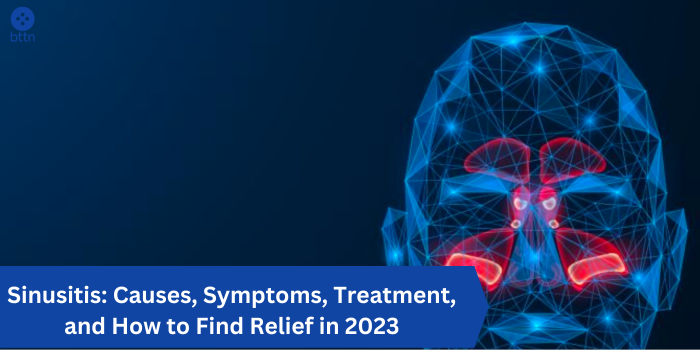
Sinusitis: Causes, Symptoms, Treatment, and How to Find Relief in 2023
Posted by Pankaj Dhiman on Sep 14th 2023
Sinusitis, a condition that plagues millions of people worldwide, can cause discomfort and disrupt daily life. If you've ever experienced a stuffy nose, facial pain, or headaches that just won't go away, you might be familiar with sinusitis. In this comprehensive guide, we'll delve into the latest information about sinusitis, covering its definition, who is at risk, common symptoms, and the most up-to-date treatment options. Plus, we'll explore ways to potentially find lasting relief and answer the question, "How to cure sinusitis permanently?"
What Is Sinusitis?
Sinusitis, also known as rhinosinusitis, is the inflammation of the sinuses. Sinuses are hollow air-filled cavities located behind your cheekbones, forehead, and around your nose. These cavities produce mucus that helps moisten the air we breathe, and they are lined with tiny hair-like structures called cilia that help move mucus out of the sinuses.
Sinusitis occurs when the sinus cavities become inflamed and blocked, preventing the proper drainage of mucus. This leads to a buildup of mucus, creating a hospitable environment for bacteria, viruses, and fungi to grow. As a result, sinusitis can be categorized into two main types:
- Acute Sinusitis: This is a short-term inflammation often caused by viral infections, such as the common cold or flu. It typically lasts for about 2-4 weeks and resolves with proper treatment or on its own.
- Chronic Sinusitis: When sinusitis persists for 12 weeks or longer despite medical treatment, it's considered chronic. It can be caused by various factors, including allergies, nasal polyps, or anatomical issues in the sinus passages.
Must Read - Gastric Problem: Causes, Symptoms, Prevention & Treatment
Who Is At Risk For Sinusitis?
Sinusitis doesn't discriminate and can affect people of all ages and backgrounds. However, certain factors can increase your risk of developing this condition:
- Respiratory Infections: Frequent colds, the flu, or other respiratory infections can leave you susceptible to sinusitis.
- Allergies: Allergic reactions to pollen, dust, pet dander, or other allergens can trigger sinusitis.
- Nasal Polyps: These noncancerous growths in the nasal passages can obstruct proper drainage and airflow, leading to chronic sinusitis.
- Deviated Septum: A crooked or deviated nasal septum can impede the flow of mucus and air through the nasal passages, increasing the risk of sinusitis.
- Environmental Factors: Exposure to pollutants, smoke, or other irritants can irritate the sinuses and contribute to sinusitis.
- Immune System Disorders: Conditions that weaken the immune system, such as HIV/AIDS or certain medications, can make you more prone to sinus infections.
- Age: Chronic sinusitis is more common in adults, but acute sinusitis can affect people of all ages.
Must Read - Heart and Lung Breathlessness: Causes, Symptoms, and Prevention
Symptoms Of Chronic Sinusitis
Chronic sinusitis presents a range of symptoms, which can vary in severity. If you're experiencing any of these symptoms for an extended period, it's advisable to consult a healthcare professional:
- Nasal Congestion: Persistent stuffiness or blockage in the nasal passages is a common symptom of chronic sinusitis.
- Facial Pain or Pressure: You may experience discomfort or pain in your forehead, cheeks, or the bridge of your nose.
- Discolored Nasal Discharge: Thick, discolored mucus may drain from your nose or the back of your throat.
- Loss of Smell: A reduced sense of smell, or anosmia, is a frequent symptom.
- Cough: Chronic coughing, often worse at night, can be associated with sinusitis.
- Sore Throat: Postnasal drip can lead to a persistent sore throat.
- Headache: Recurrent headaches, particularly around the forehead and eyes, are common.
- Fatigue: The persistent discomfort and sleep disruptions associated with sinusitis can lead to fatigue.
- Bad Breath: Foul-smelling breath may result from postnasal drip and the presence of bacteria in the sinuses.
Must Read - Exercising and Arthritis: Benefits, Prevention, and Tips
Treatment For Sinusitis
The treatment for sinusitis typically depends on the type (acute or chronic) and underlying causes. Here are some of the latest treatment options available in 2023:
1. Home Remedies:
- Nasal Irrigation: Using a saline solution to flush out mucus and irritants from the nasal passages can provide relief.
- Steam Inhalation: Inhaling steam can help soothe sinus congestion and reduce symptoms.
2. Medications:
- Decongestants: Over-the-counter decongestant nasal sprays or pills can help reduce nasal congestion.
- Antibiotics: If a bacterial infection is suspected, a course of antibiotics may be prescribed.
- Steroids: Nasal corticosteroid sprays can reduce inflammation in the nasal passages.
3. Allergy Management:
- Identifying and avoiding allergens that trigger sinusitis is essential for managing chronic sinusitis related to allergies.
4. Surgery:
- For severe cases of chronic sinusitis that do not respond to other treatments, surgery may be necessary. This can involve procedures to remove nasal polyps, correct a deviated septum, or widen the sinus passages.
5. Immunotherapy:
- Allergy shots or tablets may be recommended for those with sinusitis triggered by allergies.
It's important to consult a healthcare professional for a proper diagnosis and tailored treatment plan.
How To Cure Sinusitis Permanently?
While there's no guaranteed permanent cure for sinusitis, several strategies can help manage and reduce the frequency of flare-ups:
- Maintain Good Nasal Hygiene: Regularly irrigate your nasal passages with saline solution to keep them clean and moist.
- Allergy Management: Identify and manage allergies that may contribute to sinusitis by avoiding allergens and following your healthcare provider's recommendations.
- Stay Hydrated: Drink plenty of fluids to keep mucus thin and flowing.
- Humidify Your Home: Using a humidifier can help maintain optimal humidity levels in your home, preventing dry nasal passages.
- Avoid Irritants: Minimize exposure to smoke, pollution, and other irritants that can aggravate sinusitis.
- Practice Good Hand Hygiene: Frequent handwashing can help reduce the risk of respiratory infections that may lead to sinusitis.
- Consider Immunotherapy: Discuss allergy shots or tablets with your healthcare provider if allergies are a major contributor to your sinusitis.
- Follow Your Treatment Plan: If prescribed medication or other treatments, adhere to your healthcare provider's instructions diligently.
- Lifestyle Changes: Incorporating a balanced diet, regular exercise, and stress management techniques can strengthen your immune system and improve overall health, potentially reducing the severity and frequency of sinusitis.
In conclusion, sinusitis is a common and often bothersome condition that can affect anyone. By understanding its causes, recognizing its symptoms, and seeking appropriate treatment, you can effectively manage sinusitis and improve your quality of life. While there may not be a definitive permanent cure, adopting a combination of preventive measures and seeking medical advice when necessary can help you find lasting relief in 2023 and beyond.






